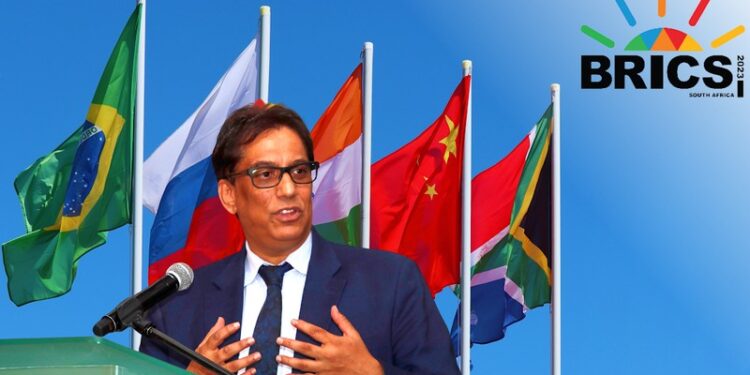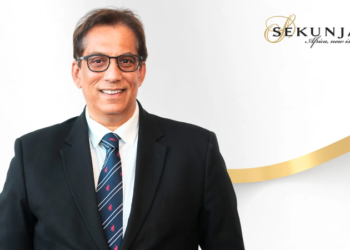The BRICS alliance – Brazil, Russia, India, China, and South Africa – represents nearly half of the world’s population and a significant portion of the global economy. As such, the influence these nations wield in shaping media narratives is immense.
The forum, whose theme is: “BRICS and Africa: Strengthening Media Dialogue for a Shared & Unbiased Future,” therefore, presents an opportune moment for BRICS nations to showcase their commitment to media ethics, truthfulness, and inclusivity in a world where fake news and fast news is encroaching on reality.
Three key topics will be discussed, to create a way forward for BRICS media as a co-operative, and serve as a road map for global media. These are: Championing Justice: Media’s Role in Shaping a New World Order; Strengthening Exchanges: Media’s Recipe in Invigorating Africa’s Growth, and Fostering Innovation: Media’s Duty in Driving Green Development.
Underpinning the forum should be a most crucial aspect, the reaffirmation of press freedom. In many countries around the world, media freedom has faced challenges, ranging from censorship to direct government control and even manipulation, for example, by the financial sector whose hidden hand in global politics is becoming more apparent.
The recent chilling example of the UK’s Brexit campaigner, Nigel Farage, who had his bank accounts closed because the bank took a personal view on Farage’s politics, is a case in point. Closer to home, the World Bank has put the squeeze on Uganda’s anti-LGBTQ laws, whilst South Africa’s big banks have all but strangled the Sekunjalo Group of companies on the pretext of a risk to the banks’ reputation –what crimes have been committed by any of these companies, executives or even shareholders, remains a mystery.
Worryingly, one of the companies affected by the potential bank account closures is South Africa’s largest print publishing group – Independent Media. Cutting off the voice for huge swathes of the South African people is tantamount to once again silencing the majority.
This is also a lesson for BRICS, as steps need to be implemented to prevent anti-BRICS sentiment, of which there is much from the Western conservative axis, from possibly leading to bank account closures and throttling of vital financial resources, for example, to force compliance of those media who have a different opinion, or who service a different sector of society.
By openly acknowledging the importance of independent journalism, the BRICS bloc can signal a collective commitment to safeguarding the free press.
For Africa and the BRICS region to really grow though, the issue of disinformation and fake news also needs to be tackled. BRICS nations could, for example, establish a joint task force to combat the spread of misinformation, sharing best practices and technological solutions to ensure accurate and verified information reaches the public. In doing so, they can reinforce their position as responsible partners in the global media landscape.
Another critical aspect is media diversity and inclusivity. The BRICS alliance represents diverse cultures, languages, and perspectives. Encouraging media outlets to embrace and celebrate this diversity can enrich the global conversation, promote cross-cultural understanding, and counter the homogenisation of news. By facilitating exchanges among journalists from different backgrounds, the foundation can be laid for a more inclusive media ecosystem, and one that promotes justice for all to shape the new world order that needs to be.
The advent of digital media has redefined the way information is disseminated and consumed. BRICS nations should focus on media innovation and technological cooperation. By sharing ideas and resources, they can collectively harness the potential of digital platforms to reach broader audiences, especially in remote or under-served regions.
Moreover, the BRICS Media Forum can act as a launchpad for discussing pressing global issues that demand international attention. Climate change, poverty, and sustainable development are just a few of the challenges that transcend national boundaries. By dedicating special coverage and resources to these topics, BRICS media outlets can leverage their combined influence to raise awareness and encourage collective action.
Lastly, while co-operation and constructive dialogue are essential, the forum should also embrace healthy competition among BRICS media outlets. Encouraging rigorous investigative journalism and substantive reporting will raise the bar for media standards globally, ultimately benefiting the public by providing them with accurate, insightful, and comprehensive news coverage.
The upcoming BRICS Media Forum in South Africa is a pivotal moment to emphasise press freedom, combat misinformation, promote media diversity, foster technological cooperation, and address global challenges. In so doing, BRICS countries can collectively shape the future of global journalism.
Only through united efforts can we build a world where media serves as a beacon of truth and enlightenment for all.
* Dr Iqbal Survé is the non-executive chairman of Independent Media and current co-chair of the BRICS Media Forum.
** The views expressed do not necessarily reflect the views of IOL or Independent Media.
Please read the full article here.









